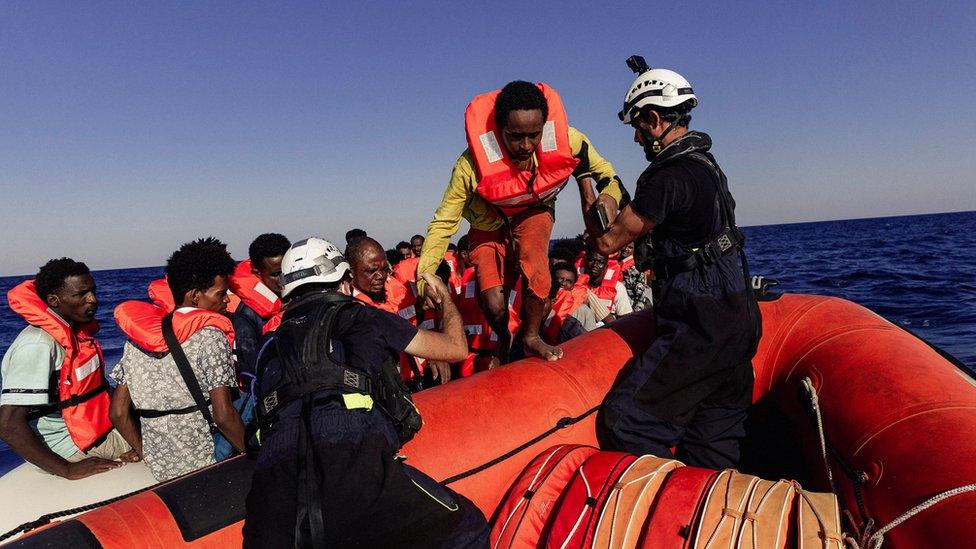Italy migrant boat shipwreck: More than 100 people feared dead
- Published
Watch: Footage shows Italian emergency services helping survivors
There are fears more than 100 people, including children, have died after their boat sank off southern Italy.
At least 63 migrants are confirmed to have died, with 12 children including a baby said to be among the victims.
The vessel, thought to have carried some 200 people, broke apart while trying to land near Crotone on Sunday.
Italy's Prime Minister Giorgia Meloni has urged EU institutions to take action to stop clandestine migrant boat journeys.
On board the boat, which had set out from Turkey a few days earlier, were said to be people from Afghanistan, Pakistan, Somalia, Syria, Iraq and Iran.
According to the Pakistani foreign ministry 16 of its citizens had survived the disaster, with four more missing.
The coastguard said 80 people had been found alive, "including some who managed to reach the shore after the sinking", meaning many more remained unaccounted for.
One survivor was arrested on migrant trafficking charges, customs police said.
As bodies were recovered from the beach and assistance and relocation operations continued, a group of survivors of the deadly shipwreck struggled to come to terms with the loss of their loved ones.
At a temporary reception centre in the town of Isola di Capo Rizzuto, some of them were crying without speaking, some were just staring into the void, wrapped in blankets.
"They are heavily traumatised," said Sergio Di Dato, from charity Médecins Sans Frontières. "Some children have lost their whole family. We are offering them all the support we can."
A 16-year-old boy from Afghanistan lost his 28-year-old sister, who died on the beach next to him. He could not find the strength to tell his parents.
A 43-year-old man from Afghanistan survived with his 14-year-old son, but his wife and his three other children, who were 13, nine, and five, did not make it. Another Afghan woman in tears would not move from the beach after losing her husband.
"This is yet another tragedy happening near our shores. It reminds us all that the Mediterranean is a giant mass grave, with tens of thousands of souls in it, and it continues to widen," said Francesco Creazzo, from SOS Méditerranée, an non-governmental organisation engaged in rescue operations in the central Mediterranean.
"There is no end in sight; in 2013, people said 'never again' to the little white coffins of Lampedusa, in 2015, they said 'never again' in front of the lifeless body of a two-year-old Syrian child on a beach.
"Now the words 'never again' are not even pronounced any more. We only hear 'no more departures', but unfortunately people keep venturing on this journey and they keep dying," he added.
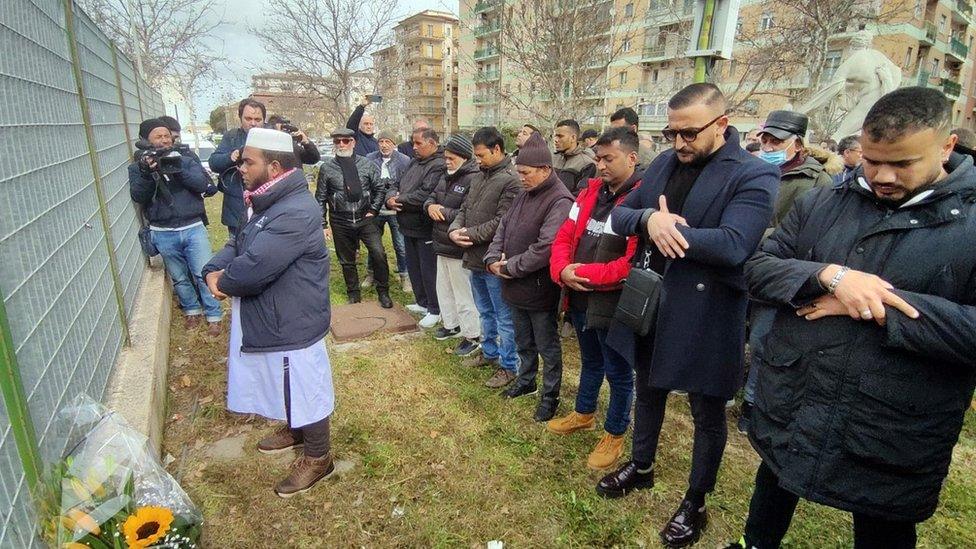
Crotone: Muslims said prayers for the victims as a sea search continued
Speaking at the UN's Human Rights Council in Geneva on Monday morning, Secretary General António Guterres called on countries to do more to help refugees and migrants, and called for safer travel routes and strengthened rescue operations.
Prime Minister Meloni - elected last year partly on a pledge to stem the flow of migrants into Italy - on Monday said the only way to tackle the issue of migrant departures "seriously" and "with humanity" was to stop migrant boat journeys.
Speaking to Italian public broadcaster Rai 1, she said she had written to the European Council and European Commission calling for immediate action to stop migrant boat departures in order to prevent more deaths.
"The more people depart, the more risk dying," she said.
Earlier on Sunday, she expressed "deep sorrow" after the incident and blamed the deaths on people smugglers.
"It is inhumane to exchange the lives of men, women and children for the price of the 'ticket' they paid in the false perspective of a safe journey," she said.
"The government is committed to preventing departures, and with them the unfolding of these tragedies, and will continue to do so."
Ms Meloni's right-wing government has vowed to stop migrants reaching Italy's shores and in the last few days pushed through a tough new law tightening the rules on rescues.
The vessel is reported to have sunk after it crashed against rocks during rough weather.
Video footage shows timber from the wreckage washing up on the beach, along with parts of the hull.
According to monitoring groups, more than 20,000 people have died or gone missing at sea in the central Mediterranean since 2014.
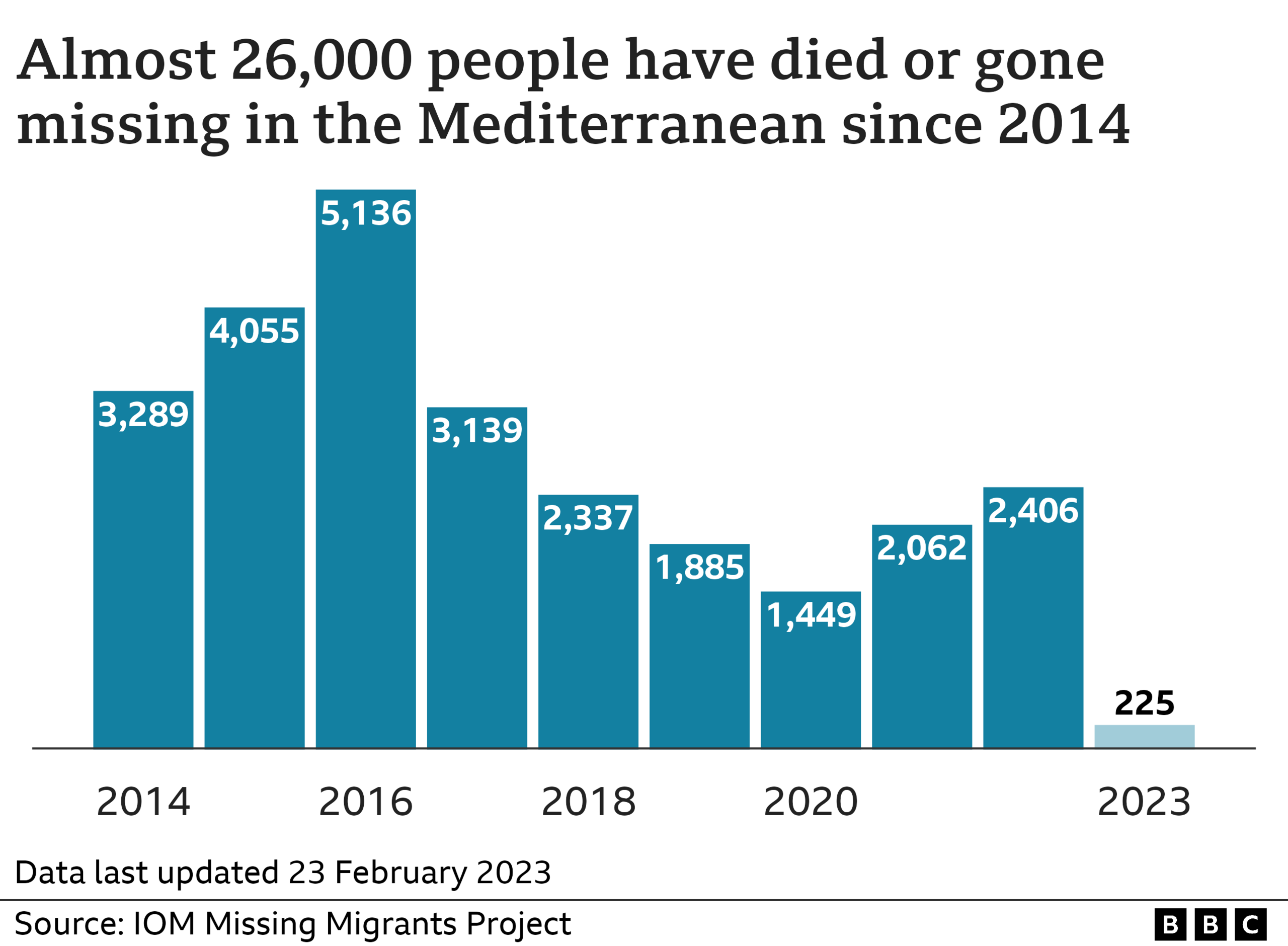

- Published27 February 2023
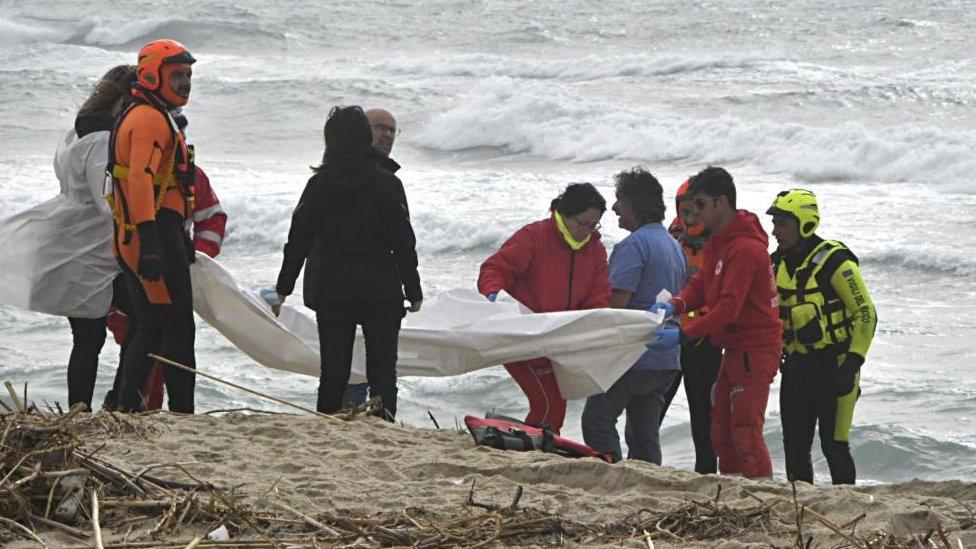
- Published15 February 2023
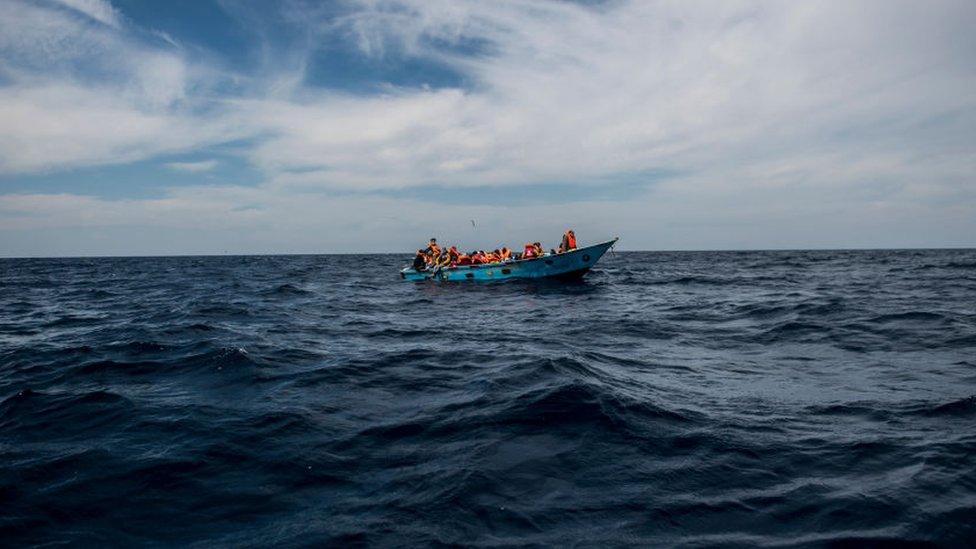
- Published14 December 2022
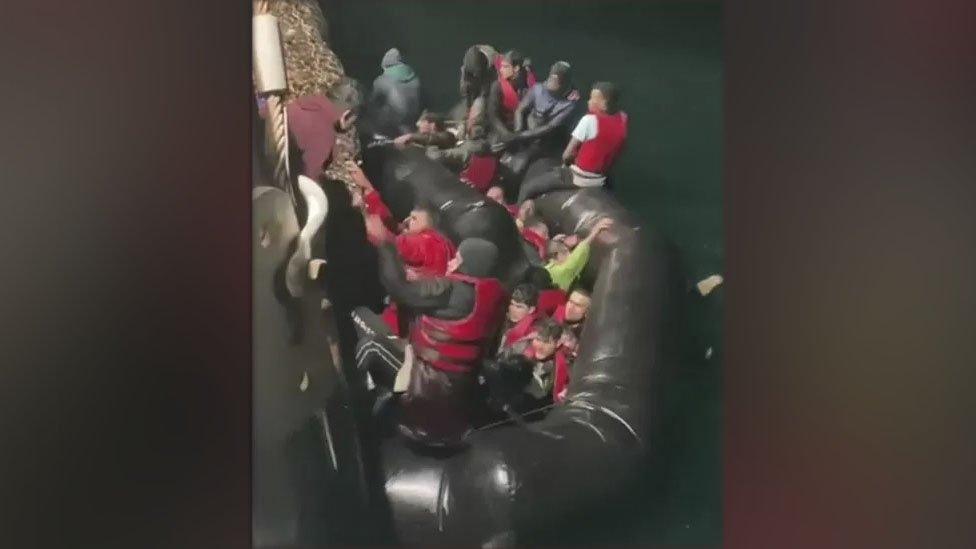
- Published24 July 2022
